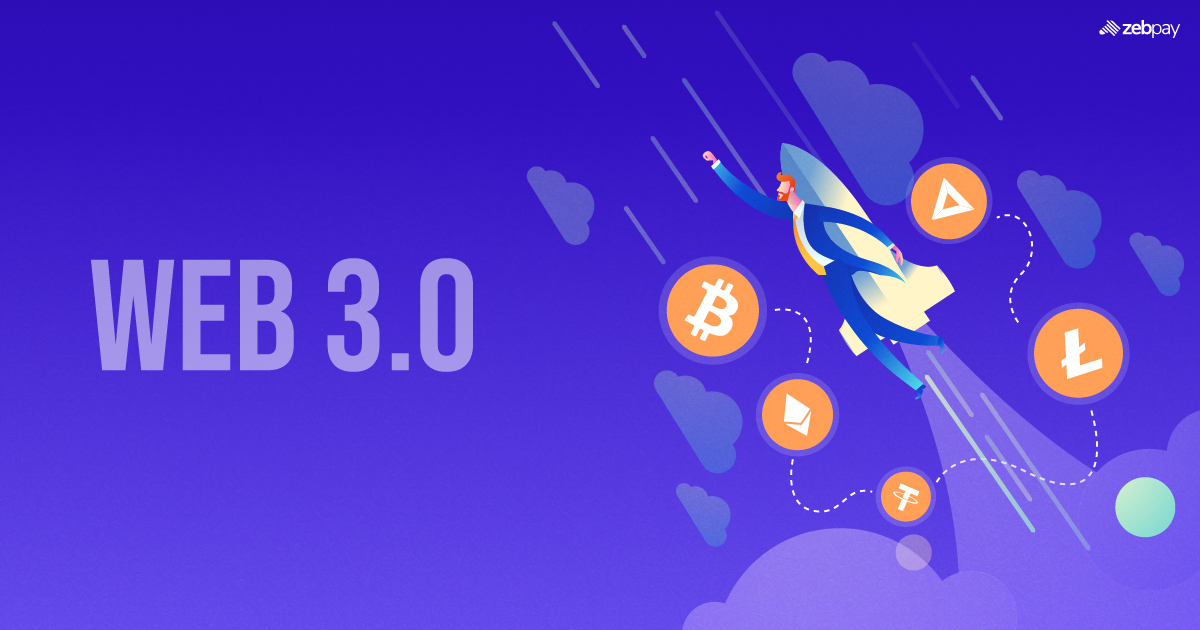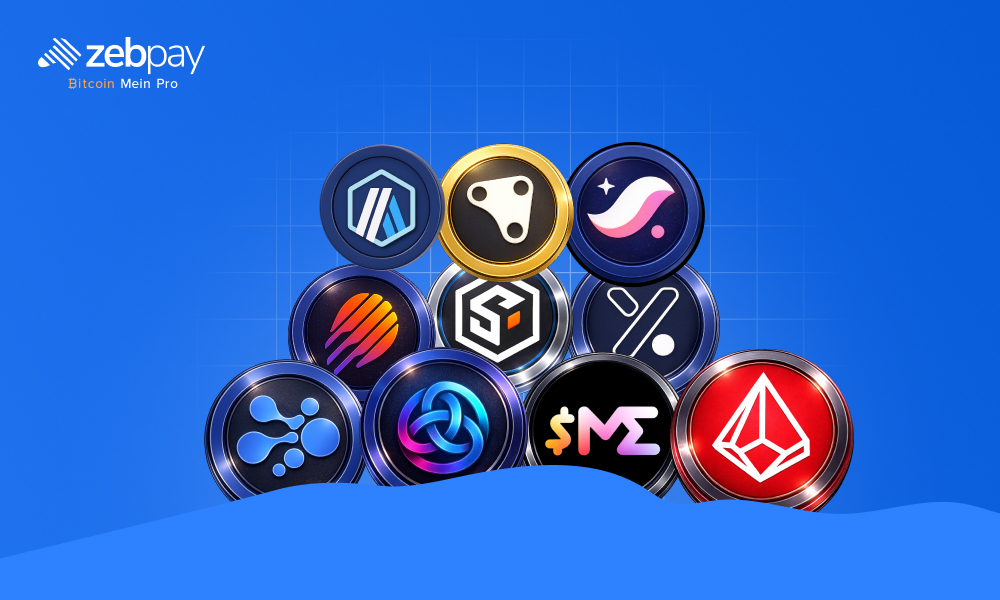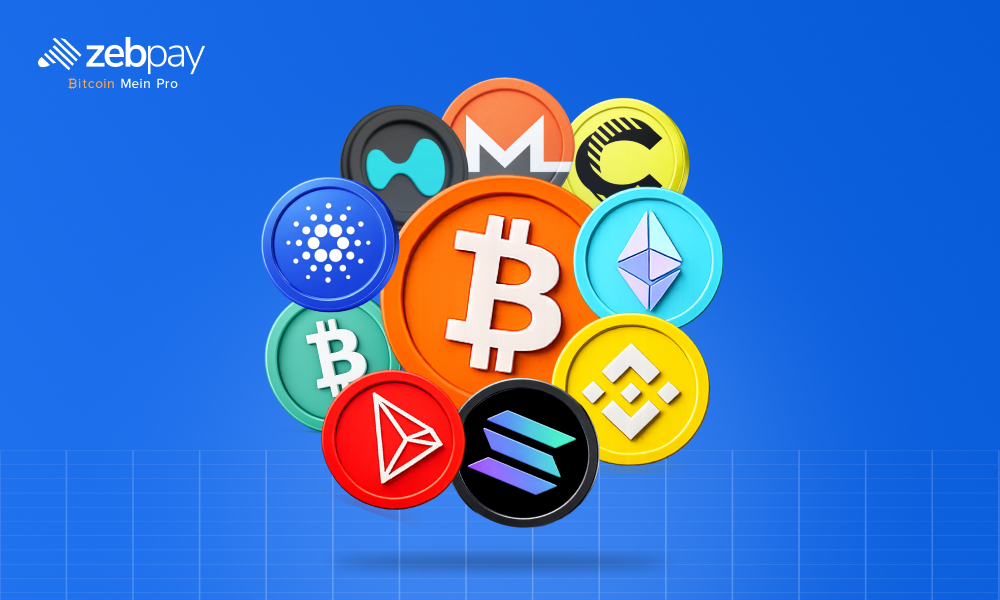Web 3.0 is said to be the next version of the Internet and could be as disruptive as Web 2.0. The new Web is built on core concepts like openness, enhanced user experience, and decentralization.
Startups usually work with a group of people, freelancers, and other related agencies to set up and scale up their operations. An innovative solution or idea is vital to creating a successful startup. This solution could be a new or an improved version of an existing one. This core idea or solution is also essential to securing funding or being selected for startup aid programs. A Web3 startup is a blockchain-backed enterprise that operates on decentralized internet networks instead of centralized ones. Some of the successful Web3 startups are based on the metaverse and NFTs.
Before we dive into how Web 3.0 can help startups, let us briefly understand what Web 3.0 actually is.
Understanding Web 3.0
Web3 is a new version of the Internet that transfers data through decentralization for greater personalization of user experiences. Some of its key features include a semantic web, 3D graphics, Artificial intelligence, blockchain technology, and decentralization. Web3 features empowering startups include decentralized data management, improved security, transparency, and access. Let us understand each of these individual features in detail.
Decentralized Applications (DApps) and Platforms
Decentralized applications, or dApps, leverage blockchain technology and smart contracts to offer users greater security, control, and transparency over their data. As this ecosystem evolves, Web3 dApps will disrupt large industries and transform how we communicate and work online.
New revenue models in the Web3 ecosystem are vital for the sustainability of these dApps. Most Web3 dApps are DeFi protocols that offer various decentralized financial services. Some Web3 dApps incorporate NFTs to offer users something tangible in return for spending time and resources on their apps. This innovative ecosystem has also created new subscription-based models incorporating crypto tokens. It has also introduced new advertising and sponsorship models based on decentralization. These applications also earn money through transaction and platform fees. Content creators have found new ways to monetize their content and have greater control over their work.
Read more: What is dApps
Tokenization and the Future of Finance
Tokenization involves converting physical assets into digital or crypto tokens on a blockchain platform. Web3, backed by blockchain technology, supports a decentralized and secure platform for creating and trading digital tokens. Tokenization can transform the future of Finance by offering unique decentralized financial products and democratizing investment opportunities.
DeFi is one of the significant and vital use cases of Web3, as it creates a secure and efficient financial system that anyone can access with an internet connection. Web3 deFi apps can have a more robust, interoperable, and scalable infrastructure for greater collaboration and innovation.
Data Privacy and Personal Sovereignty
The main objective of Web3 is to create a more open internet where you can have more control over your digital assets. Web3 users can communicate with each other and other applications without centralized intermediaries. Blockchain technology in Web3 enables users to own their data and have a well-protected online experience with fewer security risks. Web3 offers startups the most efficient way to ensure data security and reduce online attack risks.
Trust plays a vital role in decentralized Web3 ecosystems, especially in shaping users’ perceptions of brands. It becomes a key driver behind mass user adoption and growth for Web3 startups. By building trust, startups can experience increased user loyalty, community engagement, and positive reviews. Web3 enables startups to manage transactions in a transparent and auditable way. This feature also increases trust among users and other stakeholders.
Decentralized Identity and Authentication
Decentralized identity aims to empower users with more control over their online personas and to secure their data. Web3 is working towards creating a more decentralized online future that gives users complete control over their data.
The rise of deFi applications has led to the need for digital identity systems for Web3 startups to send credentials without revealing sensitive information. As our self-expression evolves online, more decentralized applications will emerge. For example, NFTs are used as visual identifiers to represent a user’s online identity. Metaverse has enabled users to create full-body avatars to depict themselves online.
Web 3.0 Infrastructure and Scaling Solutions
Layer 2 networks can process transactions off-chain without immediately recording them on the layer-1 blockchain. A single cumulative outcome of transactions is added to the layer-1 blockchain once many transactions have been processed on the layer-2 network. This method uses the security of the underlying blockchain while speeding up transaction times and reducing costs.
Layer 2 networks increase scalability without compromising their decentralized nature. These networks create a more collaborative and interconnected ecosystem by enabling interoperability between different blockchains. This feature may lead to changes in governance structures as proposals may need to consider the consensus of multiple blockchains.
Layer 2 solutions can improve transaction fees, reduce costs, and create financial instruments for DeFi startups. These innovations can improve industries like gaming by improving in-game asset management, enabling cheaper and faster transactions, and enhancing the gaming experience.
Read more: Layer 1 Blockchain Vs Layer 2 Blockchain
NFTs (Non-Fungible Tokens) and Digital Assets

NFTs have found applications in different sectors, such as art, sports, gaming, fashion, and event tickets. NFT applications are likely to expand with the expansion of the Web3 ecosystem. Web3 offers startups a unique opportunity to showcase their products through an enhanced virtual medium with NFT utilization. NFT adoption has been steadily increasing, as has the number of users on NFT marketplaces.
Innovative Web3 startups can make NFTs with unique applications succeed and grow. NFT startups can prove resilient in turbulent times by offering diverse products and focusing on the long-term potential of the NFT market.
Web 3.0 in Emerging Industries
The healthcare industry is being disrupted due to the latest technological advancements, such as telemedicine, video conferencing, and chatbots. Other technological advancements altering the medical sector include VR-enabled medicines and AI-enabled medical services.
Other startups can easily track and analyze their business operations due to the transparency offered by the Web3 ecosystem. Startups can quickly identify issues in various departments, reduce costs, and improve time management.
Read more: Future of Web3 in Ecommerce
Collaborations and Partnerships in Web 3.0
With the growth of the Web3 ecosystem, there is more collaboration between individuals and businesses. Decentralized Web3 networks are developing new peer-to-peer collaborations that can change how we work and disrupt many industries.
Web3 also encourages strategic partnerships between startups to share knowledge, resources, and expertise. Web3 startups can easily find partners such as technology providers, developers, and industry leaders to drive innovation and accelerate growth.
Success Stories and Case Studies
Messari was founded in 2018 to provide market intelligence that drives more participation in the Web3 economy. This company helps developers and user communities navigate the Web3 landscape through cutting-edge tools and intelligence. It is the leading Web3 startup that provides crypto market intelligence to developers who confidently interact with the Web3 ecosystem.
Polygon was founded in 2017 and is an Ethereum scaling platform that aims to support developers in building dApps with low fees without compromising network security. Polygon uses a custom proof-of-stake consortium blockchain that enables uniformity on each block.
Conclusion: Embracing the Web 3.0 Frontier
Web3 is still in its nascent stages of development and holds immense potential to revolutionize the growth of startups. Web3 offers startups a more efficient, transparent, and secure way to conduct business and manage their data. Blockchain-enabled Web3 is creating a more equitable and democratic internet. Startups should explore all the benefits offered by Web3 technologies to grow and expand rapidly.
To stay up to date with the latest crypto news, visit ZebPay blogs. Click on the button below to trade on ZebPay.






